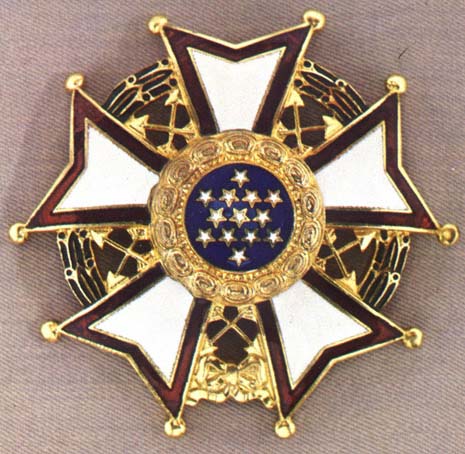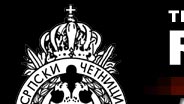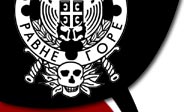|
Introduction
General Mihailovic was a tragic hero of the Serbian people
in the Second World War. Serbian people consider him a hero,
but there are those who say he is a traitor. The biggest honors
for one person cannot come from within his own people, but
from the independent foreign observers. Here are quotes taken
from the book Patriot or Traitor by David Martin which contain
writings and some testimonies about General Mihailovic from
the participant who had direct knowledge of his actions. The
testimonies were given to the Commission of Inquiry of the
committee for the fair trial of General Mihailovic.
Almost
from its inception, the Committee for a Fair Trail for Mihailovich
operated in close liaison with another organization that
came into existence during the first part of April: the
National Committee of American Airmen to Aid General Mihailovich
and the Serbian People.
During the course of 1944, many hundreds of American airmen
flying bombing missions into Romania were shot down over
Yugoslavia. Of those who were shot down, substantially more
than 500 and perhaps as many as 600 were rescued by the
forces of General Mihailovich-frequently after spirited
battles with German patrols who raced to meet the descending
parachutes. Some 40 of these airmen were evacuated together
with the British mission when it was withdrawn from Mihailovich's
headquarters at the end of May 1944. A total of 432 American
airmen and several score members of other Allied forces,
including 30 Russians, were evacuated by an American Air
Crew Rescue operation between August 9 and December 27.
At least another 100 American airmen who had been rescued
by the Mihailovich forces were guided to Tito's Partisans
and evacuated from their territory when, at different times
and in different areas, it became impossible to arrange
for any further American landings in Mihailovich territory.
When the news of Mihailovich's capture broke, on March 25,
1946, scores of these rescued airmen-acting on their own-immediately
wrote to their newspapers and to their congressmen, telling
the truth as they had seen it, and asking that their government
intercede so that they could testify on Mihailovich's behalf
in Belgrade. Hundreds of such letters and related articles
appeared in the American press in the weeks following Mihailovich's
capture.
-David Martin, in the introduction to his book Patriot or
Traitor:
The
Case of General Mihailovich
He clasps
the crag with crooked hands…he watches from his mountain
walls, and like a thunderbolt he falls.
These
words, written of an eagle, today are a far better fit for
one of the most amazing commanders of World War II. He is
Yugoslavia's Draja Mihailovich. Ever since Adolf Hitler
vaingloriously annouced a year ago that he had conquered
Yugoslavia, Draja Mihailovich and his 150,000 guerrillas
in the mountains southwest of Belgrad have flung the lie
into Hitler's teeth. It has been probably the greatest guerrilla
operation in history….Last fall Mihailovich kept as many
as seven Nazi divisions chasing him through his Sumadija
mountains.
-Time magazine, May of 1942
The
fingers of history, rustling through the pages of the Second
World War, may provide an ironic postscript to the scene
that took place at dawn yesterday somewhere in the vicinity
of Belgrade when General Drazha Mihailovich crumpled before
the bullets of a Yugoslav firing squad….
History may decide that it is not Tito-who was in safety
while Mihailovich was fighting in the hills in those early
days-but the executed Chetnik leader whose statue should
stand in Red Square in Moscow. But Mihailovich fell yesterday
in Belgrade.
-New York Times, July 18, 1946
When
we landed all of us had the same fear. We had been warned
to stay away from Mihailovich's Chetniks. This came from
our Intelligence. It was small wonder we were afraid.
Weeks later we knew the truth. Gen. Mihailovich was no traitor
but a patriot-the only people who didn't think so were the
Communists….
The men with me revered Mihailovich. They spoke of him with
a deep feeling and told me many times he was the real wartime
leader of Yugoslavia. Their faithfulness to his orders was
touching.
-New York Journal-American
Evidence
has been produced to the effect that airmen landed in different
parts of Yugoslavia, which parts were in Chetnik hands,
that such airmen were saved not only by people in the Chetnik
territory but by direct orders of Mihailovich, that this
was in spite of large rewards offered by the Germans if
airmen were surrendered to them, and that these airmen during
the varied periods of their stays in Yugoslavia saw nothing
resembling collaboration of any kind with the Germans. Certianly
such evidence must be regarded as material in this case.
-Arthur Garfield Hayes, Chairman of Commission of Inquiry
and a member of the committee for the fare trial of Draza
Mihailovic
THE
WITNESS: And they
told us that they had seen us come down and they knew that
we were in that area, and if we were not turned in the Germans
in reprisal would burn down the nearby village. I took this
rather seriously, because I figured they would surely turn
me over. But one man said they did not expect to do anything
about it. It was informed later that the village was burned
down when we had not been returned.
This was rather strange to me, and I asked this particular
Serbian who was my guide all the time I was in Serbia, Miodrag
Stefanovic-I asked him how come the Chetnicks sacrificed
the village just to protect Americans who were actually
strangers to them; and he told me that as an American flyer
I am more valuable and inflict much more destruction upon
the common enemy than 100 or 150 Serbs; he said that was
the reason why they did not think anything of sacrificing
the town so they can save us and return us to our base to
continue our fight against Germany.
-From the testimony of Capt. Daniel Desish, served as American
OSS officer in Yugoslavia during World War II
This
was a fairly large job, and for it General Mihailovich massed
about 2,500 troops from the area surrounding Visegrad, both
to the south and the southwest. They met in the mountains
just below Visegrad; and on the dawn of October 3rd, I believe,
1943, we launched a dawn attack.
On that occasion we started the attack with mortars, captured
mortars, very poor equipment, no sights, using simply a
rough sighting to strike at the German bunkers surrounding
the town and the German garrison. The Serb artillery men
and Chetniks would have to crawl up to the crest of the
hill and watch where the mortar shells landed and then turn
around and give directions to the men handling the mortar
to turn it slightly. In that way, by just checking them,
they wiped out several of the bunkers, and eventually a
charge was ordered and the town was taken. This is just
an approximation, I would guess we killed, oh, 150 or 200
Germans.
-From the testimony of Capt. Walter R. Mansfield, OSS at
Mihailovic's headquarters

Legion
of Merit awarded to General Mihailovic by President Truman
with the following dedication:
Chief
Commander
General
Dragoljub Mihailovich distinguished himself in an outstanding
manner as Commander-in-Chief of the Yugoslavian Army Forces
and later as Minister of War by organizing and leading important
resistance forces against the enemy which occupied Yugoslavia,
from December 1941 to December 1944. Through the undaunted
efforts of his troops, many United States airmen were rescued
and returned safely to friendly control. General Mihailovich
and his forces, although lacking adequate supplies, and fighting
under extreme hardships, contributed materially to the allied
cause, and were instrumental in obtaining a final Allied Victory.
March
29, 1948 klklklkllklkllkllllllllllkllllkll
HARRY S. TRUMAN
|



